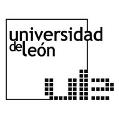

|
Jorge GARCIA-ARIAS |
|
Teaching & Supervision |
|
Courses Taught
More than 25 years of teaching experience in BA, MA and PhD programs. About 20 different subjects taught in more than 10 different programs (Economics, Geography, Environmental Sciences, Education, Law, Finance, International Trade, Social Education, Business Administration, …
Postgraduate (selection)
· Globalisation and Development · International Finance and Development · Heterodox Economics Education · Exchange rate (in)stability
Undergraduate (selection) · Political Economy of Development · International Finance and Trade · Public Economics/Public Finance · Macroeconomics · Economic Geography
Recent Teaching Projects · Jean Monnet Project (EU-ECO-FIN-101047757) “The European Union context in Economic and Financial Education during the Secondary /Baccalaureate /VET studies". PI: Prof. M. Tascon (University of Leon, Spain) Period: 2022-2025 Financing Institution: European Union
Review Committees (selection) · International external reviewer to the implementation of the MSc in Development Studies (online program), School of Oriental and African Studies (SOAS), University of London. 2019.
Postgraduate Students Supervised (selection) · F. Gonzalez (Colombia) “Rights of Nature: the case of the Atrato River. Biocultural rights and Andean Good Living, as an invitation to deconstruct the development model and reestablish the bond of harmony, care and respect in the Human-Nature relationship.” July, 2024 · R. Bottone (Italy) “Let them pass: advocating for legal pathways in migration management”, October 2023. · M. Maldonado Aguas (Ecuador) “Migrant caravans from Central America Northern Triangle (TNCA) to the United States (US): a response to the vision of coloniality from a body-territory perspective”, July 2023. · E. Studer (Switzerland) “Beyond growth: are post-growth principles present in EU policy making?”, 2023. · R.P. Wanner da Silva (Brazil) “Neoliberalism in Brazil and the Covid-19 pandemic”, 2023. · A. Fillola (Spain) “Intervention proposal for the study of economic inequalities through cooperative learning in the subject of Economics in the 1st year of Spanish Baccalaureate”, 2023. · J.S. Torres (Colombia) “Reflections on Colombian development: between external cooperation and local challenges”, 2022. · B.A. Williams (Switzerland) “To what extent can public-private partnerships support the SDGs and enable a scenario whereby people, the planet and profit are considered equally?”, 2022. · T. Yamagochi (Japan) “Buen Vivir and Shintoism as pluriversal alternatives to the hegemonic development model”. 2021. · H. Brenha Piñeiro (Brazil) “Less concessional, more militarized and more privatized: a critical approach to the reform of DAC Official Development Assistance in the post-2015 framework”. 2021. · A. Nido (Spain) “Including Degrowth in secondary education classrooms through the flipped classroom methodology”. 2021. · S. González (Spain) “Globalization and environmental economics. An adaptation to virtual (on-line) class models”. 2020. · D. Rodríguez (Spain) “Microeconomics and the market through classroom experiments”. 2020. · M. Bermejo (Spain) “Proposal of academic innovation through the flipped classroom. Didactic unit: Production & economic growth”. 2020. · A. Martínez (Honduras) “Neoliberalism and international development cooperation in public policies for education in Honduras”. 2017. · M. Pacyga (Poland) “Policy coherence for development: theoretical framework, policies and a comparison between Poland and Spain”. 2016. · W. Massolola (Congo-Brazzaville) “The impact on European Development Fund in financing African countries: the case study of Congo-Brazzaville”. 2015. · P. Munayeza (Rwanda) “Development assistance: the case of Fishery Partnership Agreements EU-Mozambique”. 2015. · T. Reyes (Spain) “Tax Havens: an analysis of their problematic and their effects on development”. 2014. · J. Mediavilla (Spain) “Philanthrocapitalism and development: theoretical analysis and poliomyelitis as a case study”. 2013. · A. González (Spain) “A CO2 Tax as an innovative instrument for financing for development”. 2012. |